International
Putin orders exercises of the Russian strategic nuclear forces
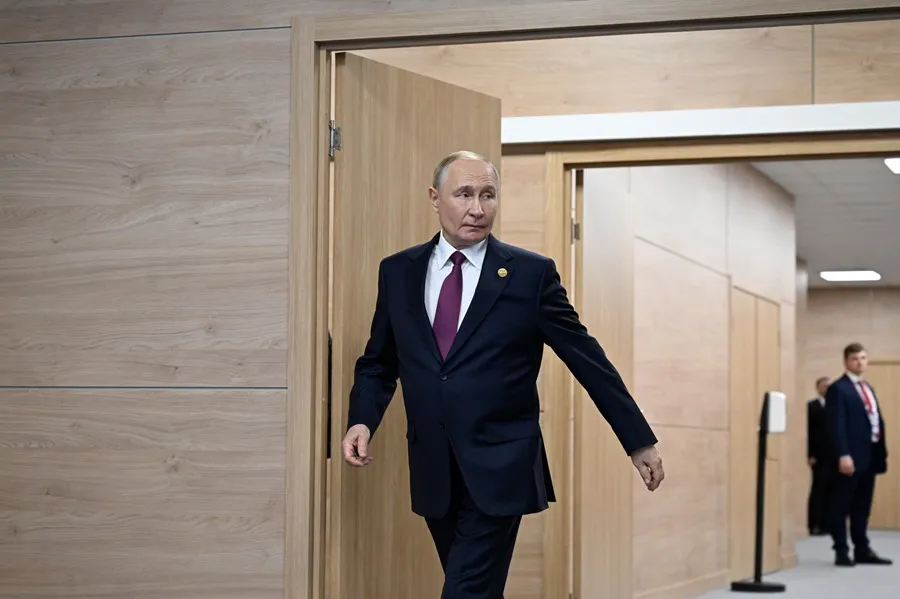
Russian President Vladimir Putin ordered the celebration this Tuesday of exercises of the strategic forces of nuclear deterrence in order to rehearse the launch of ballistic and cruise missiles.
“We will train the actions of the commanders to control the use of nuclear weapons with ballistic and cruise missile launches,” Putin said during a statement broadcast on Russian television.
Putin stressed that, “taking into account the increase in geopolitical tensions and the emergence of new external threats and risks, it is important to have modern strategic forces that are permanently ready for use in combat.”
He stressed that the nuclear triad – intercontinental missiles, atomic submarines and strategic aviation – continues to be a “reliable guarantor of the sovereignty and security of our country, which allows the tasks of strategic deterrence to be fulfilled.”
In addition, he added, it also allows “to maintain nuclear parity and the balance of forces in the world as objective factors of global stability.”
Use of nuclear weapons
At the same time, Putin assured that “Russia confirms its principled position that the use of nuclear weapons is an extreme and extraordinary measure of security guarantee.”
The head of the Kremlin insisted that Moscow intends to continue perfecting all the components of its nuclear arsenal within the framework of the state rearmament program, for which it has greatly increased defense spending since the beginning of the war in Ukraine.
This will include the supply to strategic forces of new stationary and mobile missile systems that are much more accurate and, in addition, require less time for launch, he explained.
“And, what is very important, with greater possibilities of overcoming missile defense systems,” he added, alluding to the US shield.
However, he assured that, although Russia intends to strengthen its nuclear forces with modern armaments – currently that indicator is 94% – it does not plan to be involved in a “new arms war” as happened to the Soviet Union.
At the end of last July, Russia carried out tactical nuclear maneuvers with Belarus using Iskander-M ballistic missiles.
Recently, Putin announced the modification of the current nuclear doctrine after the West considered allowing Ukraine to use long-range weapons against targets in Russian territory.
The new doctrine contemplates the use of nuclear weapons in the event of a conventional attack that threatens the sovereignty of Russia and Belarus.
Negotiations between Russia and the United States are currently stalled for the signing of a new START, which expires in 2026 and which is the last strategic disarmament treaty between the two superpowers.
International
Maduro signs Economic Emergency Decree to counter U.S. sanctions on Venezuela
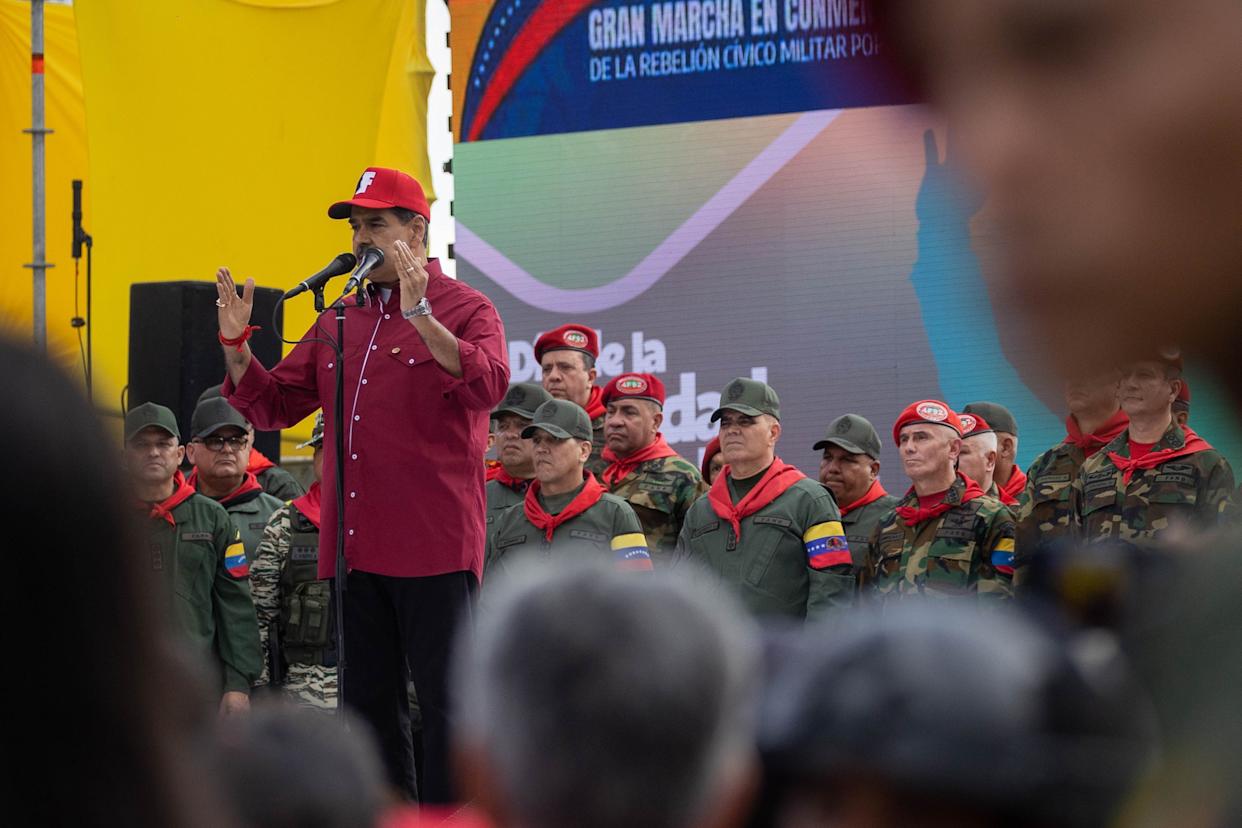
The National Assembly of Venezuela approved on Thursday an economic emergency decree presented this week by the government of President Nicolás Maduro, in response to sanctions and tariffs imposed by the United States.
In March, the government of Donald Trump began suspending licenses for foreign oil companies operating with the state-owned Venezuelan oil company PDVSA and imposed secondary tariffs on crude oil and gas exports. Maduro signed the decree on Tuesday, invoking constitutional articles that allow him to declare states of exception, temporarily restrict constitutional guarantees, or declare a state of emergency in the event of disasters, public calamities, or events that seriously threaten the country’s security.
The emergency decree “is to support national production,” said Delcy Rodríguez, Vice President and Minister of Hydrocarbons, during the document’s presentation.
“The affected oil markets, the fall in oil prices, have already surpassed 30% in our measurement, and this, as we say, is just the beginning,” Rodríguez stated, clarifying that Venezuela’s oil and gas production continues.
Rodríguez also mentioned that foreign oil companies are welcome to operate in Venezuela in accordance with local laws.
The United States has set a deadline of May 27 for oil companies operating in Venezuela, including Chevron (U.S.), Eni (Italy), and Repsol (Spain), to wind down their operations and exports.
The decree grants Maduro the authority to implement measures he deems necessary to ensure economic growth, contain inflation, offer special treatment to investors, suspend taxes, or apply exceptions to tax laws, and establish import substitution mechanisms, among other measures.
Maduro and his government have consistently rejected sanctions imposed by the United States and other countries, arguing that they are illegitimate measures constituting an “economic war” designed to cripple Venezuela.
The president and his allies have celebrated what they describe as the country’s resilience despite these measures, although they have historically attributed some economic difficulties and shortages to the sanctions.
This is not the first time Maduro has governed under an emergency decree. In 2016, he signed a similar decree, which was extended until 2021 under the argument of sanctions imposed on Venezuela by Washington.
With the Assembly’s approval, the decree must now be sent to the Constitutional Chamber of the Supreme Court of Justice.
Central America
U.S. Government says deported migrants should remain in El Salvador for life
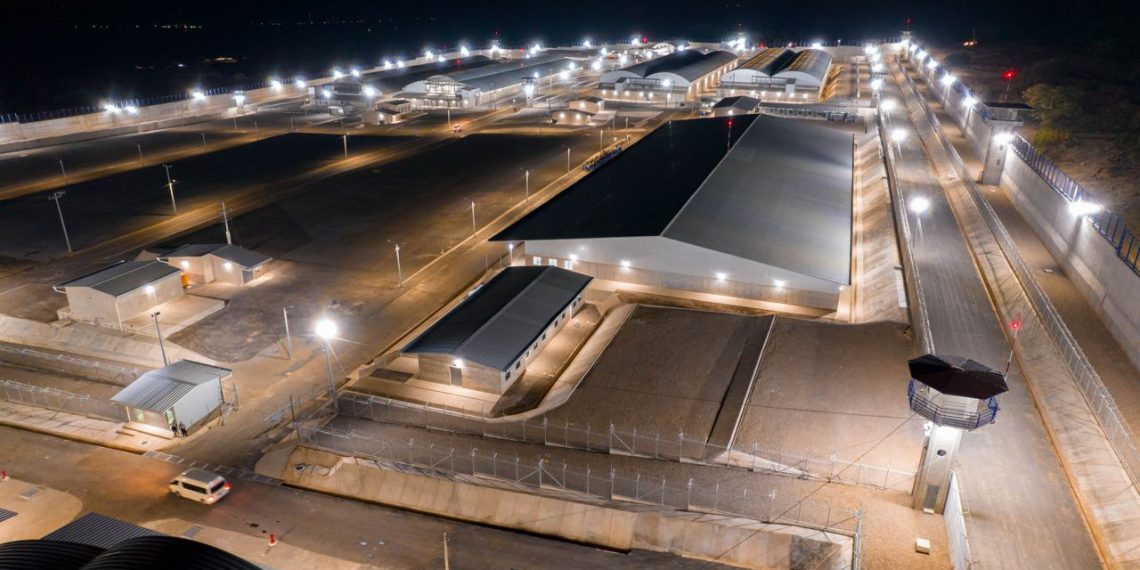
The United States government believes that the 238 migrants recently deported to El Salvador should remain in the country “for the rest of their lives.”
This was stated by Kristi Noem, the Secretary of Homeland Security, during a press conference. The following day, in a televised cabinet meeting, she reiterated the government’s commitment to continue its campaign to deport over 11 million people living in the U.S. without legal immigration status.
“We are confident that the people (sent to El Salvador) should be there, and they should stay there for the rest of their lives,” Noem told a group of reporters on Wednesday.
Despite the Trump administration’s defense of its decision to transfer the migrants to the Terrorism Confinement Center (Cecot), both testimonies from their families and reports from U.S. media outlets have shown that most of those currently detained there have no criminal backgrounds.
International
Italian biologist found dead in Colombia; investigation underway

An Italian scientist has been found dead in Colombia, local authorities confirmed, after body parts were discovered along a trail in the coastal city of Santa Marta on Sunday.
Municipal police said that a bracelet found among the remains belonged to Alessandro Coatti, a biologist who had recently embarked on a journey across South America. Additional human remains were later discovered in two other locations within the city.
According to the police, Coatti had been staying in a local accommodation and was reportedly visiting the scenic Tayrona coastal area on April 5. His whereabouts since that date remain unknown, prompting an urgent investigation.
“There are currently no further details available; the case remains under investigation,” Colombia’s Attorney General’s Office said on Thursday. “It is still unclear what happened or where.”
-

 Internacionales5 days ago
Internacionales5 days agoErik Prince Backs Ecuador’s Daniel Noboa in Fight Against Crime and “Narcoterrorism”
-

 Central America5 days ago
Central America5 days agoGuatemala’s Legal Chief Shot Dead in Parking Lot: Investigation Underway
-

 Central America4 days ago
Central America4 days agoHonduras Hosts CELAC Summit Amid Regional Concern Over U.S. Deportations
-

 International3 days ago
International3 days agoRussia and US to Meet in Istanbul for Diplomatic Talks on April 10
-

 Central America3 days ago
Central America3 days agoAudit Exposes Major Breaches in Panama Canal Port Concession, $300 Million Owed to State
-

 International4 days ago
International4 days agoTeachers in Southern Mexico Bring Education to Stranded Migrant Children
-

 Central America4 days ago
Central America4 days agoMulino and Orsi Highlight Shared Vision After Panama Joins Mercosur as Associate State
-

 Central America4 days ago
Central America4 days agoTrump Administration Asks Supreme Court to Block Return of Deported Salvadoran
-

 Sports3 days ago
Sports3 days agoNeymar Returns to Santos Training After Month-Long Injury Layoff
-

 International1 day ago
International1 day agoMerengue concert turns to mourning as Jet Set collapse claims 136 lives
-
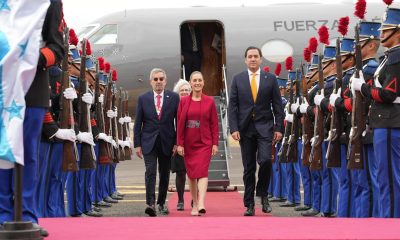
 Central America1 day ago
Central America1 day agoMexico’s president proposes regional economic summit at CELAC
-

 Central America8 hours ago
Central America8 hours agoNicaragua seeks ICJ intervention in Gaza conflict amid escalating violations
-
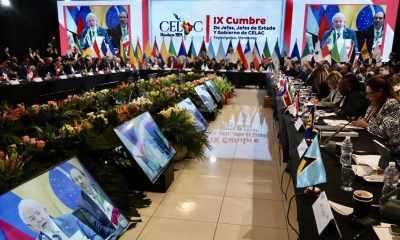
 Central America1 day ago
Central America1 day agoColombia to host fourth EU-CELAC Summit in November
-
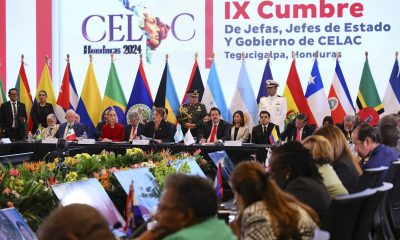
 Central America1 day ago
Central America1 day agoCELAC condemns unilateral sanctions in ‘Tegucigalpa Declaration’
-

 International3 days ago
International3 days agoMaduro Announces Economic Emergency Decree Amid Growing Tensions with the U.S.
-

 International3 days ago
International3 days agoTransgender Student Arrested at Florida Capitol for Using Women’s Restroom Under New State Law
-

 International3 days ago
International3 days agoScience Brings Back the Extinct Direwolf with Successful De-Extinction Project
-

 International9 hours ago
International9 hours agoItalian biologist found dead in Colombia; investigation underway
-

 Central America9 hours ago
Central America9 hours agoU.S. Government says deported migrants should remain in El Salvador for life
-

 International8 hours ago
International8 hours agoMaduro signs Economic Emergency Decree to counter U.S. sanctions on Venezuela















